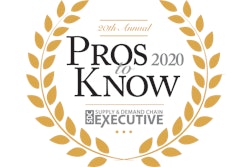
Council of Supply Chain Management Professionals (CSCMP) is committed to both developing and arming supply chain professionals to be successful in their pursuit of excellence throughout their careers, as well as advancing our discipline and accomplishing CSCMP’s mission of a truly integrated, end-to-end supply chain. To that end, CSCMP has partnered with the University of Tennessee, Knoxville’s, Global Supply Chain Institute (GSCI) and IHS Markit to produce a tool that improves market intelligence, decision-making and risk mitigation efforts for supply chain professionals. The EPIC Global Supply Chain Readiness Index (EPIC) employs a data-driven approach that combines UT’s quantitative analysis with IHS Markit’s rich on-the-ground qualitative insights from more than 55 countries around the globe. This tool is designed to provide foundational and contemporary input to supply chain leaders to drive more informed decisions about how to best operate in these markets.
The EPIC Global Supply Chain Readiness Index 2020 report is built upon a book authored by a team of faculty from the University of Tennessee and ESSEC School of Management (Paris, France) entitled Global Supply Chains: Evaluating Regions on an An EPIC Framework. The EPIC framework originally introduced in the book provides a methodology and approach that enables firms to better assess different locations for global supply chain operations, including sourcing, manufacturing, and distribution. With data sets selected by UT and analysis provided by IHS Markit, the EPIC Report 2020 will update the previous work and give supply chain executive’s insight about the capabilities of supply chain globally.
“Adapting to the ever-changing supply chain landscape requires vigilance and adaptability. Supply chain leaders are always planning for disruption, and the EPIC Index is a new tool to help today’s leaders enhance their risk management strategies,” president and CEO of CSCMP, Rick Blasgen says. “What that means in today’s terms is that you need to keep a strategic eye on macroeconomic trends, advancements in technology, and consumer expectations that have the potential to become either rallying points or disrupters to your business. Whether you are facing trade wars, recessions, natural disasters, border issues, or some other as yet unidentified disruption, supply chains still need to roll on and if you don’t shift and adjust with the landscape, you will wither and someone else will fill the void.”
Supply chain professionals who operate in the global environment need to be armed with a solid global supply chain management strategy. The EPIC framework from Global Supply Chains: Evaluating Regions on an An EPIC Framework is an important tool needed to develop this strategy. We describe the EPIC framework, and then explain how companies can use it to increase their global competitiveness.
“Operating in the global environment is becoming increasingly complex, especially for supply chain professionals. In order to increase global competitiveness, professionals need to be armed with a solid strategy to assess risk,” executive director of the Global Supply Chain Institute, Shay Scott, says. “What we’ve developed is a tool that helps your company to measure and anticipate supply chain and sourcing risks. The EPIC index is designed to provide foundational and contemporary input to supply chain leaders, allowing them to make more informed decisions about how to best operate in diverse markets.”
Using the EPIC Framework to evaluate global regions
Global supply chain managers can benefit from a tool that helps them assess their supply chain location decisions, identifying the strengths, weaknesses, opportunities and threats of the different regions in the world. The EPIC framework provides the structure for assessing various regions around the globe for supply chain readiness in regard to Economy (E), Politics (P), Infrastructure (I) and Competency (C).
The EPIC framework defines and explains these dimensions of the global market environment, in order to assess their potential impacts on the effectiveness of global supply chain management activities, as well as to identify the characteristics of those dimensions in each region of the world. The framework measures and assesses the levels of “maturity” held by a geographic region, with specific respect to its ability to support supply chain activities. The four EPIC dimensions are then assessed using a set of variables associated with each dimension.
Quantitative and qualitative analysis
In partnership with IHS Markit and the unique insight and perspective of a leading Research firm, Council of Supply Chain Management Professionals (CSCMP), the University of Tennessee, and IHS Markit can provide a global view of the capabilities of global supply chains and enable leading supply chain organizations to make better, more informed decisions that will improve the effectiveness and efficiency of their supply chains.


















